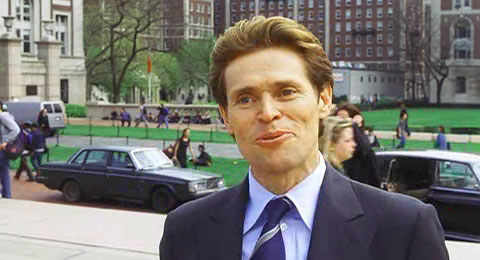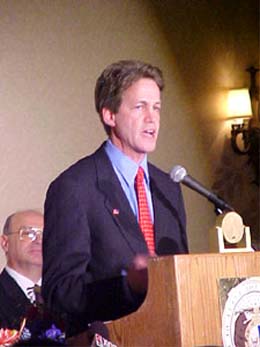
On one of the early days of the paper route, before dad had learned about International Harvester Scouts and when the there was the morning and afternoon newspapers, dad drove into the driveway of our Valley Park townhouse one afternoon with a partially shattered winshield.
He drove a red Chevette for the paper route because he thought about gass mileage in those days, not utility. It took one Minnesota winter to change his mind on modes of transportation. But this was before all that. The windshield was shattered, which was a mystery in and of itself. What was probably even more amazing to the rest of the family was that dad had come home with a shattered windshield and wasn't cussing about it.
In fact, he sort of wandered into the house, dazed, like people act when they get hypnotized in cartoons. With the usual way my father would enter the house after the route, it took no knowledge of rocket science to know something else was afoot. When we asked what was the deal, he simply showed us the windshield. He wanted to show us the damage in order to beg us to tell the story.
We begged. I was in 3rd grade and just had to know.
Dad told us that we wouldn't believe him, but we promised that we would. Then he began to tell a story that was quite amazing, somewhat incredible. And yet, since we knew he didn't have much of a creative sense about him in matters such as these, we believed him.
The story involved horses, a pack of wild horses, he told us. Perhaps they were not wild horses, but they were not acting tame either. Wild or tame, it didn't matter; between the red Chevette and the herd of horses was no fence. He saw them in running in the field beyond the dirt road, off in the distance in the mid afternoon sun. He was struck by their beauty and kept an eye on them.
He delievered another paper into the paper tube next the farm looking mailbox in the middle of no where. Then dad noticed the horses running toward him. Then he realized that these were very large horses running very fast - toward the road, toward him.
He stopped the car because it looked like the horses might jump the ditch and cross the dirt road. At first he thought that he didn't want to hurt one of the horses with the car. But the closer the horses got, the bigger he realized that they were and thought that he didn't want the car to get damaged by the horses.
The herd was large, each horse was large - there was no sign that they were stopping. The first horse jumped the ditch onto the dirt road right in front on the little red Chevette - my father frozen in wonder. More horses followed the lead horse. Dad looked out over the herd and noticed that if they all kept charging forward at their same course, they would run right into the car. He thought to move th car, but realized that would almost guarantee hitting one of these beautiful equine giants. He stayed put.
Drenched with wonder and fear, my father sat as these wonders of nature pressed in upon him. He was helpless, powerless to make a change. He had to just sit there and let it happen. When you sit in a red Chevette and a herd of gigantic horses is charging in your direction, you don't feel safe. You feel bare naked.
He noticed that one of the horses was headed straight for the car. Without hesitating even a bit, the horse leapt the ditch and landed on the dirt road between the ditch and the car. Dad winced and shut his eyes, bracing for the impact. He sat there, waiting. Nothing happened. All he heard was the thunder of the heard. The horse had completely cleared the car. Dad couldn't believe it.
Then he watched, awestruck, as horse after horse cleared the car. It was as of the car wasn't even there. It was like being caught in an air bubble under a raging river. As the horses cleared
car, dad had a moment of comfort and calm, like he was peacefully swept up into a rushing miracle.
The peace and calm was snapped when the back hoof of one of the last horses missed clearing the Chevette and landed on the driver's side portion of the windshield, right in front of dad's face. Tiny particles of glass fell on my father's lap as he sat breathless in the front seat - paralyzed. The glass spiderwebbed the span the windshield. The last horse crossed the dirt road - and they were gone.
Dad sat for several minutes, right in the middle of the road, wondering if that all had really happened. Did horses really jump over my car? Who wold believe me? The shattered glass kept telling him that he hadn't made it all up.
He managed to finish the paper route drive home with a shattered windshield.
As dad told us the story, it never occured to any of us that there was a message in the horses. These horses told a story. A story of beauty and power. A story about how God is very near and
not exactly safe.











